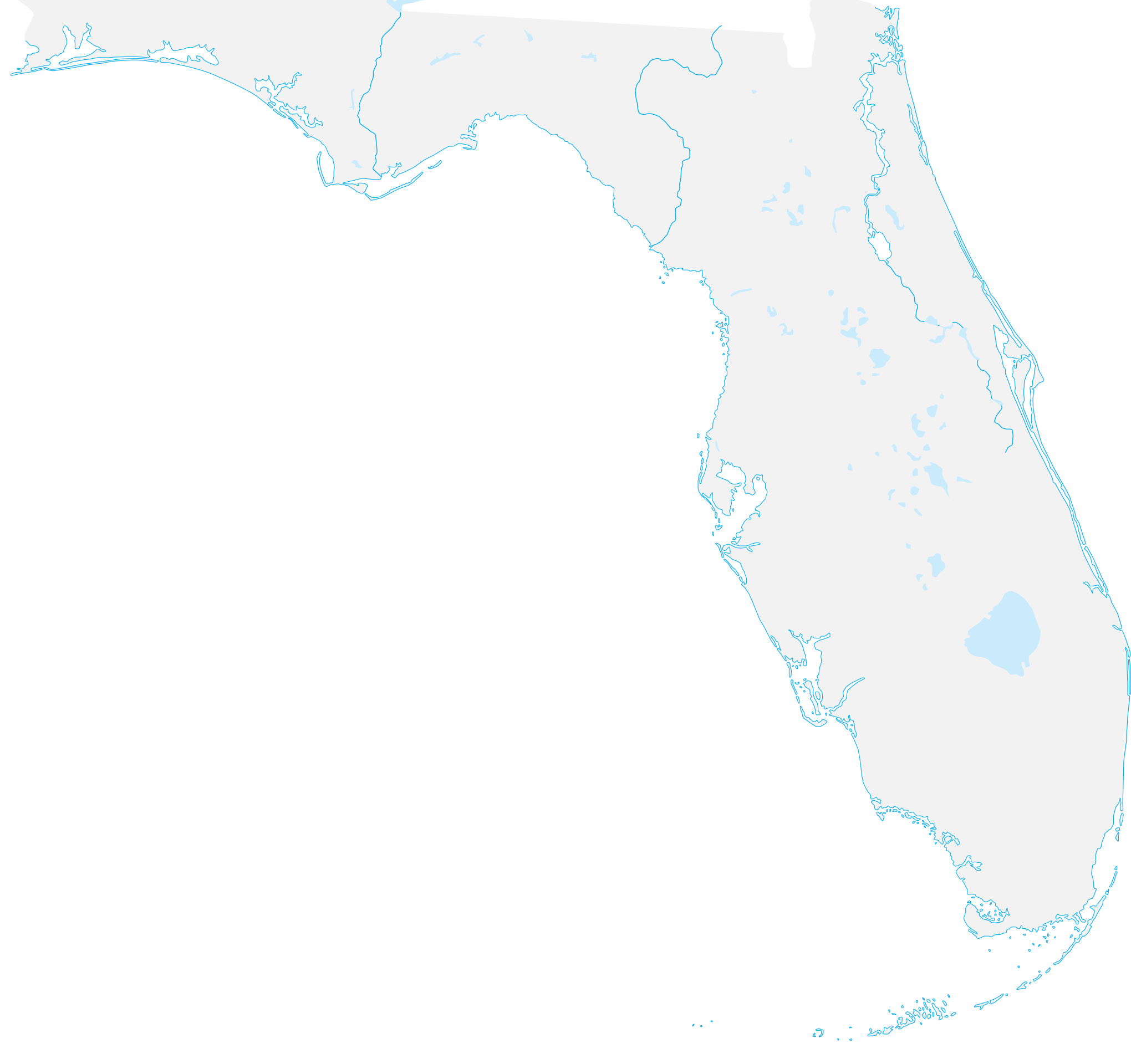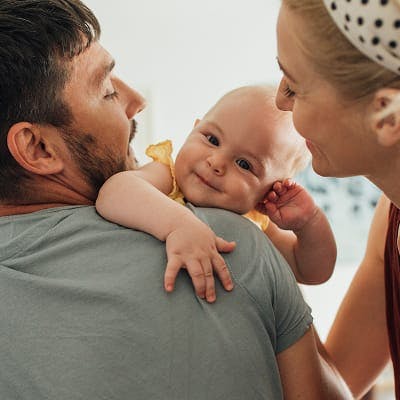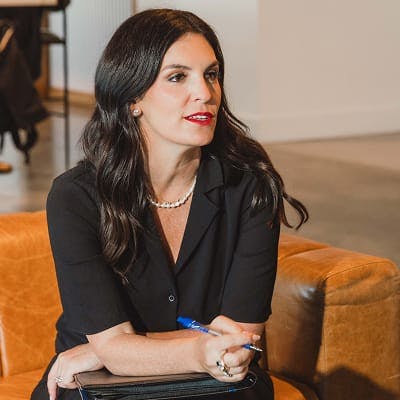Jan 21, 2026
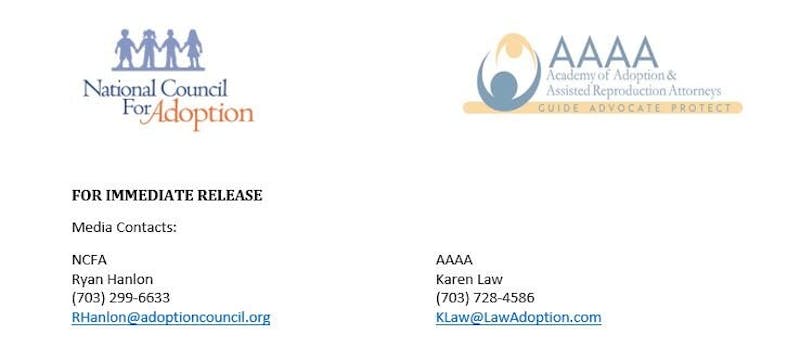
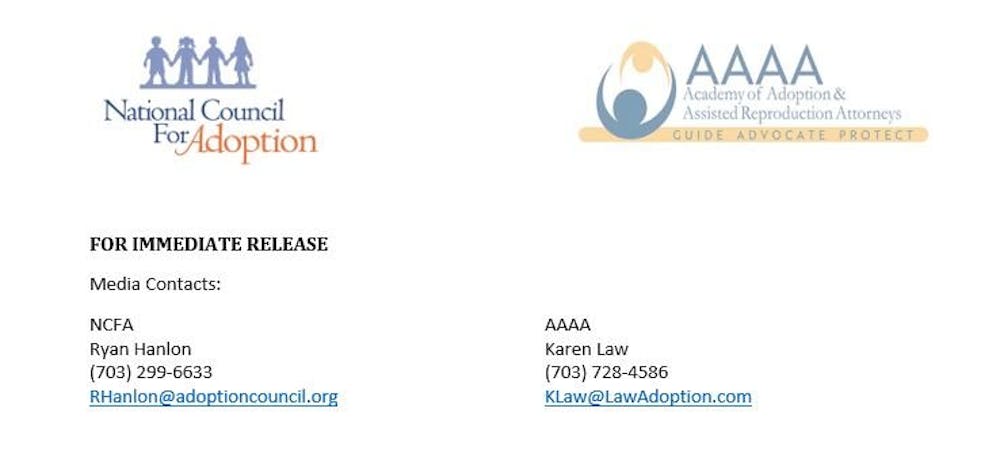
March 27, 2020 – Alexandria, VA – Many U.S. families in the midst of intercountry adoptions are currently stranded overseas in vulnerable situations and in need of immediate assistance as a result of international travel restrictions from the current Covid-19 pandemic. These adoptive parents are waiting to obtain their child’s U.S. visa so the child can enter the United States. But with the current global health pandemic, and delays in processing times, these families find themselves stuck, isolated, and fearful as each day goes by without movement on their case. These parents will not abandon their children – and, likewise, we must not abandon them during this crisis.
National Council For Adoption (NCFA) and the Academy of Adoption & Assisted Reproduction Attorneys (AAAA) call upon the Department of State to recommend and coordinate the urgent processing of humanitarian parole to the children of adoptive families who are unable to receive an adoption visa in a timely manner so that the families may safely return to the United States together as soon as possible.
“Each of these cases need urgent action,” said NCFA’s Ryan Hanlon. “U.S. citizens who have adopted children internationally cannot be asked to abandon their children while waiting for a visa, and return to the United States. Instead, we must be willing to respond to these extreme, unprecedented circumstances with solutions that prioritize the safety, health, and welfare of these families and the children they have legally adopted.”
The Department of State’s Foreign Affairs Manual instructs consular officers to prioritize adoption cases; the current pandemic only increases the need for cases to be processed as quickly as possible. There are a small number of cases in which an adjudication for an adoption visa has not yet been completed but, under the current dire circumstances, the child is eligible for humanitarian parole which should be granted so that these families and their adopted child can safely return to the United States. A failure to do so is unacceptable, placing families in the untenable position of having their safety and health unnecessarily jeopardized.
“All families who have full and final adoptions and have satisfied the U.S. requirements for I-600A, I-800A, or I-130 processing should be immediately prioritized” said the Center for Adoption Policy’s Diane Kunz. “If they have completed the adoption in the foreign country and have an approved I-600A or I-800A, humanitarian parole is a legal and compassionate solution to U.S. citizens and their children in crisis.”
“Humanitarian parole has been used in past world emergency situations to allow adopted children to exit the country quickly with their adoptive families. We want to emphasize that all the normal immigration processes will be followed for the children to obtain U.S. citizenship but they will be completed safely within the U.S. ” said AAAA’s Laurie Goldheim.
The Department of State’s Office of Children’s Issues can be reached at [email protected] and has posted notices regarding travel warnings and Covid-19 related information on their website. All impacted families should ensure that they are coordinating with the Office of Children’s Issues, the foreign Embassy with whom they are working, and with their adoption service provider.
ABOUT NATIONAL COUNCIL FOR ADOPTION
National Council For Adoption (NCFA) is passionately committed to the belief that every child, everywhere, deserves to thrive in a nurturing, permanent family. We work tirelessly to educate U.S. and foreign government officials and policymakers, members of the media, and all those in the general public with an interest in adoption. For more information, visit www.AdoptionCouncil.org.
ABOUT THE ACADEMY OF ADOPTION & ASSISTED REPRODUCTION ATTORNEYS
The Academy of Adoption & Assisted Reproduction Attorneys (AAAA) is a credentialed organization dedicated to the competent and ethical practice of adoption and assisted reproduction law. It advocates for laws and policies to protect the best interests of children, the legal status of families formed through adoption and assisted reproduction, and the rights of all interested parties. For more information, visit www.adoptionart.org.







